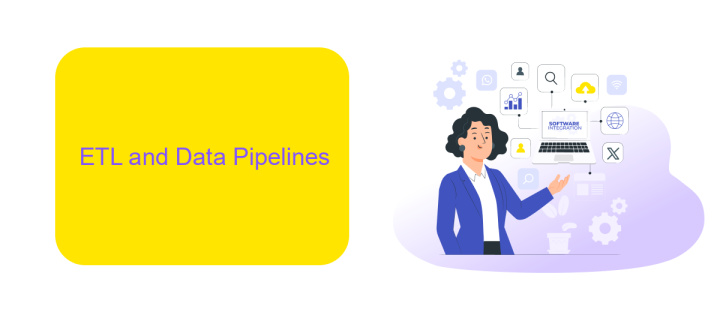ETL and Data Pipelines With Shell, Airflow and Kafka
In today's data-driven world, efficient data processing is crucial for businesses. This article explores the use of Shell scripts, Apache Airflow, and Apache Kafka to build robust ETL (Extract, Transform, Load) pipelines. These tools streamline data workflows, ensuring timely and accurate data delivery. Learn how to leverage their capabilities to enhance your data infrastructure and drive better decision-making.
Introduction
The process of extracting, transforming, and loading (ETL) data is fundamental to modern data engineering. ETL pipelines enable organizations to efficiently process large volumes of data from various sources, ensuring data is clean, accurate, and ready for analysis. In this article, we will explore how to build ETL and data pipelines using Shell scripts, Apache Airflow, and Apache Kafka.
- Shell Scripts: A powerful tool for automating repetitive tasks and managing data workflows.
- Apache Airflow: An open-source platform to programmatically author, schedule, and monitor workflows.
- Apache Kafka: A distributed streaming platform capable of handling real-time data feeds.
By leveraging these tools, organizations can create robust and scalable data pipelines that streamline their data processing needs. Additionally, services like ApiX-Drive can be integrated to further automate and optimize data workflows, reducing the need for manual intervention and ensuring seamless data integration across various platforms.
ETL and Data Pipelines

ETL (Extract, Transform, Load) and data pipelines are essential components in modern data engineering. ETL processes involve extracting data from various sources, transforming it into a suitable format, and loading it into a destination system. Data pipelines automate this flow, ensuring data is consistently processed and available for analysis. Effective ETL and data pipeline management can significantly enhance data quality, reliability, and accessibility, which are crucial for informed decision-making.
To streamline ETL and data pipeline operations, tools like Apache Airflow and Kafka are commonly used. Airflow allows for the orchestration of complex workflows, while Kafka provides a robust platform for real-time data streaming. Additionally, services like ApiX-Drive can facilitate seamless integration between different data sources and destinations, reducing the complexity of manual configurations. By leveraging these tools and services, organizations can build efficient and scalable data pipelines that support their analytical needs.
Shell and Airflow

Shell scripting is a fundamental skill for managing ETL processes. It allows for the automation of data extraction, transformation, and loading tasks by writing simple scripts. These scripts can be scheduled using cron jobs, enabling regular data pipeline execution without manual intervention. However, shell scripts can become cumbersome when dealing with complex workflows and dependencies.
- Create a shell script for data extraction.
- Transform the data using command-line tools like awk, sed, or custom scripts.
- Load the transformed data into the target database or data warehouse.
- Schedule the script using cron for regular execution.
Apache Airflow takes ETL automation to the next level by providing a platform to programmatically author, schedule, and monitor workflows. Unlike shell scripts, Airflow allows for complex dependencies and dynamic pipeline construction. With Airflow, you can create Directed Acyclic Graphs (DAGs) that define the sequence of tasks. Additionally, integrating with services like ApiX-Drive can further streamline data workflows by providing pre-built connectors and automation tools, simplifying the integration of various data sources and destinations.
Integrating with Kafka

Integrating Kafka into your ETL and data pipeline processes can significantly enhance real-time data streaming and processing capabilities. Kafka, a distributed streaming platform, allows for the seamless transfer of data between systems, ensuring that your data is always up-to-date and readily available for analysis.
One of the primary benefits of using Kafka is its ability to handle large volumes of data with low latency, making it ideal for applications that require real-time data processing. By integrating Kafka with tools like Apache Airflow and shell scripts, you can automate and streamline your ETL workflows, ensuring efficient data movement and transformation.
- Set up Kafka producers to send data from various sources to Kafka topics.
- Configure Kafka consumers to read data from topics and process it as needed.
- Utilize Apache Airflow to orchestrate and monitor your Kafka-based ETL pipelines.
- Leverage tools like ApiX-Drive to simplify and automate the integration process.
By incorporating Kafka into your ETL and data pipeline strategy, you can achieve a robust, scalable, and real-time data processing environment. This integration not only enhances data accuracy and timeliness but also provides the flexibility to adapt to evolving data processing needs.


Conclusion
In conclusion, building ETL and data pipelines using Shell, Airflow, and Kafka offers a robust and scalable solution for managing data workflows. Shell scripts provide the flexibility for quick data manipulation and automation, while Airflow excels in orchestrating complex workflows with ease. Kafka, on the other hand, ensures reliable and efficient real-time data streaming, making it an invaluable component for modern data engineering tasks.
Additionally, integrating these tools with services like ApiX-Drive can further enhance the efficiency and reliability of your data pipelines. ApiX-Drive simplifies the integration process, allowing seamless data transfer between various applications and services without extensive coding. This not only reduces the time required for setup but also minimizes the chances of errors, ensuring smoother operations. By leveraging these technologies and services, organizations can achieve more streamlined, accurate, and timely data processing, ultimately driving better business insights and decisions.
FAQ
What is ETL and why is it important?
How does Apache Airflow help in managing ETL workflows?
What role does Kafka play in data pipelines?
Can shell scripting be used for ETL processes?
How can ApiX-Drive assist in automating ETL and data integration tasks?
Apix-Drive is a universal tool that will quickly streamline any workflow, freeing you from routine and possible financial losses. Try ApiX-Drive in action and see how useful it is for you personally. In the meantime, when you are setting up connections between systems, think about where you are investing your free time, because now you will have much more of it.

